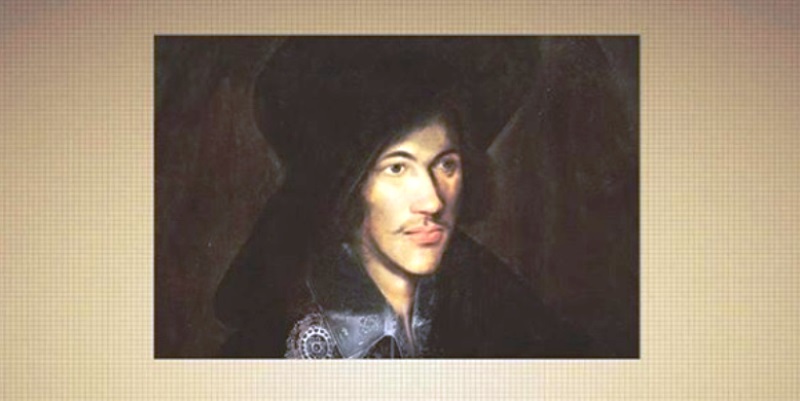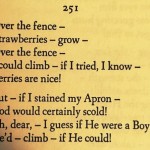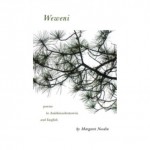John Donne was not only one of the best English poets, but also a great writer of English prose. This, however, became a known fact only in the beginning of 20th century. It would surprise you that before this, Donne’s work was actually condemned as crude and incompetent. Donne only received praise in his small circle of admirers, among whom he would circulate manuscripts. The poet gained acclaim and accolades as a preacher toward the end of his life.

Image source: Instagram
During the 18th, and most of the 19th century, Donne’s writings were scarcely read, let alone appreciated. Samuel Johnson dismissed Donne’s work as frigidly ingenious and uncouth. However, Samuel Taylor Coleridge’s notes show a testimony of admiration beside a copy of Donne’s poem. This was very rare, because Donne’s poems were taken up by avant-garde readers only toward the end of the 1800s.
In this post, we will be looking at 10 of the best poems by John Donne. We hope you will love reading them as much as we did curating them for you.
Suggested read: If You Haven’t Read Sylvia Plath Yet, Then You Are Missing Out On A Lot!
10 best poems by John Donne
- Death Be Not Proud
Alternate Title: Sonnet X
Published in 1633
Death, be not proud, though some have called thee
Mighty and dreadful, for thou art not so;
For those whom thou think’st thou dost overthrow
Die not, poor Death, nor yet canst thou kill me.
From rest and sleep, which but thy pictures be,
Much pleasure; then from thee much more must flow,
And soonest our best men with thee do go,
Rest of their bones, and soul’s delivery.
Thou art slave to fate, chance, kings, and desperate men,
And dost with poison, war, and sickness dwell,
And poppy or charms can make us sleep as well
And better than thy stroke; why swell’st thou then?
One short sleep past, we wake eternally
And death shall be no more; Death, thou shalt die.
- The Good-Morrow
Published in 1633
I wonder, by my troth, what thou and I
Did, till we loved? Were we not weaned till then?
But sucked on country pleasures, childishly?
Or snorted we in the Seven Sleepers’ den?
’Twas so; but this, all pleasures fancies be.
If ever any beauty I did see,
Which I desired, and got, ’twas but a dream of thee.
And now good-morrow to our waking souls,
Which watch not one another out of fear;
For love, all love of other sights controls,
And makes one little room an everywhere.
Let sea-discoverers to new worlds have gone,
Let maps to other, worlds on worlds have shown,
Let us possess one world, each hath one, and is one.
My face in thine eye, thine in mine appears,
And true plain hearts do in the faces rest;
Where can we find two better hemispheres,
Without sharp north, without declining west?
Whatever dies, was not mixed equally;
If our two loves be one, or, thou and I
Love so alike, that none do slacken, none can die.
- Song: Go and catch a falling star
Alternate Title: Song
Published in 1633
Go and catch a falling star,
Get with child a mandrake root,
Tell me where all past years are,
Or who cleft the devil’s foot,
Teach me to hear mermaids singing,
Or to keep off envy’s stinging,
And find
What wind
Serves to advance an honest mind.
If thou be’st born to strange sights,
Things invisible to see,
Ride ten thousand days and nights,
Till age snow white hairs on thee,
Thou, when thou return’st, wilt tell me,
All strange wonders that befell thee,
And swear,
No where
Lives a woman true, and fair.
If thou find’st one, let me know,
Such a pilgrimage were sweet;
Yet do not, I would not go,
Though at next door we might meet;
Though she were true, when you met her,
And last, till you write your letter,
Yet she
Will be
False, ere I come, to two, or three.
Suggested read: Phil Kaye Is The Dumbledore Of Spoken Word Poetry! Here’s Why
- The Canonization
We can die by it, if not live by love,
And if unfit for tombs and hearse
Our legend be, it will be fit for verse;
And if no piece of chronicle we prove,
We’ll build in sonnets pretty rooms;
As well a well-wrought urn becomes
The greatest ashes, as half-acre tombs,
And by these hymns, all shall approve
Us canonized for Love.
- Batter My Heart, Three-personed God
Alternate Title: Sonnet XIV
Published in 1633
Batter my heart, three-personed God, for you
As yet but knock, breathe, shine, and seek to mend;
That I may rise, and stand, o’erthrow me, and bend
Your force to break, blow, burn, and make me new.
I, like an usurped town, to another due,
Labour to admit you, but Oh, to no end.
Reason, your viceroy in me, me should defend,
But is captived, and proves weak or untrue.
Yet dearly I love you, and would be loved fain,
But am betrothed unto your enemy:
Divorce me, untie or break that knot again,
Take me to you, imprison me, for I,
Except you enthrall me, never shall be free,
Nor ever chaste, except you ravish me.
- The Sun Rising
Published in 1633
Busy old fool, unruly Sun,
Why dost thou thus,
Through windows, and through curtains, call on us?
Must to thy motions lovers’ seasons run?
Saucy pedantic wretch, go chide
Late school-boys and sour prentices,
Go tell court-huntsmen that the king will ride,
Call country ants to harvest offices;
Love, all alike, no season knows nor clime,
Nor hours, days, months, which are the rags of time.
- A Valediction: Forbidding Mourning
Published in 1633
Excerpt:
As virtuous men pass mildly away,
And whisper to their souls to go,
Whilst some of their sad friends do say
The breath goes now, and some say, No:
So let us melt, and make no noise,
No tear-floods, nor sigh-tempests move;
‘Twere profanation of our joys
To tell the laity our love.
- The Flea
Published in 1633
Excerpt:
Cruel and sudden, hast thou since
Purpled thy nail, in blood of innocence?
Wherein could this flea guilty be,
Except in that drop which it sucked from thee?
Yet thou triumph’st, and say’st that thou
Find’st not thy self, nor me the weaker now;
’Tis true; then learn how false, fears be:
Just so much honor, when thou yield’st to me,
Will waste, as this flea’s death took life from thee.
- The Dream
Published in 1635
Dear love, for nothing less than thee
Would I have broke this happy dream;
It was a theme
For reason, much too strong for fantasy,
Therefore thou wak’d’st me wisely; yet
My dream thou brok’st not, but continued’st it.
Thou art so true that thoughts of thee suffice
To make dreams truths, and fables histories;
Enter these arms, for since thou thought’st it best,
Not to dream all my dream, let’s act the rest.
As lightning, or a taper’s light,
Thine eyes, and not thy noise wak’d me;
Yet I thought thee
(For thou lovest truth) an angel, at first sight;
But when I saw thou sawest my heart,
And knew’st my thoughts, beyond an angel’s art,
When thou knew’st what I dreamt, when thou knew’st when
Excess of joy would wake me, and cam’st then,
I must confess, it could not choose but be
Profane, to think thee any thing but thee.
Coming and staying show’d thee, thee,
But rising makes me doubt, that now
Thou art not thou.
That love is weak where fear’s as strong as he;
‘Tis not all spirit, pure and brave,
If mixture it of fear, shame, honour have;
Perchance as torches, which must ready be,
Men light and put out, so thou deal’st with me;
Thou cam’st to kindle, goest to come; then I
Will dream that hope again, but else would die.
- A Hymn to God the Father
Alternate Title: To Christ
Published: 1630s
Wilt thou forgive that sin where I begun,
Which was my sin, though it were done before?
Wilt thou forgive that sin, through which I run,
And do run still, though still I do deplore?
When thou hast done, thou hast not done,
For I have more.
Wilt thou forgive that sin which I have won
Others to sin, and made my sin their door?
Wilt thou forgive that sin which I did shun
A year or two, but wallow’d in, a score?
When thou hast done, thou hast not done,
For I have more.
I have a sin of fear, that when I have spun
My last thread, I shall perish on the shore;
But swear by thyself, that at my death thy Son
Shall shine as he shines now, and heretofore;
And, having done that, thou hast done;
I fear no more.
Suggested read: #WorldPoetryDay The Best Indian Poets That We Want To Read Over And Over Again
That is all we have on today’s post on the best poems by John Donne. Did you like what you just read? Let us know in the comment section below.
Keep your eyes on this space if you love books and tales they carry in them. If you want to contribute an article, then please feel free to do so.
See you again next time.
Featured image source: Instagram













